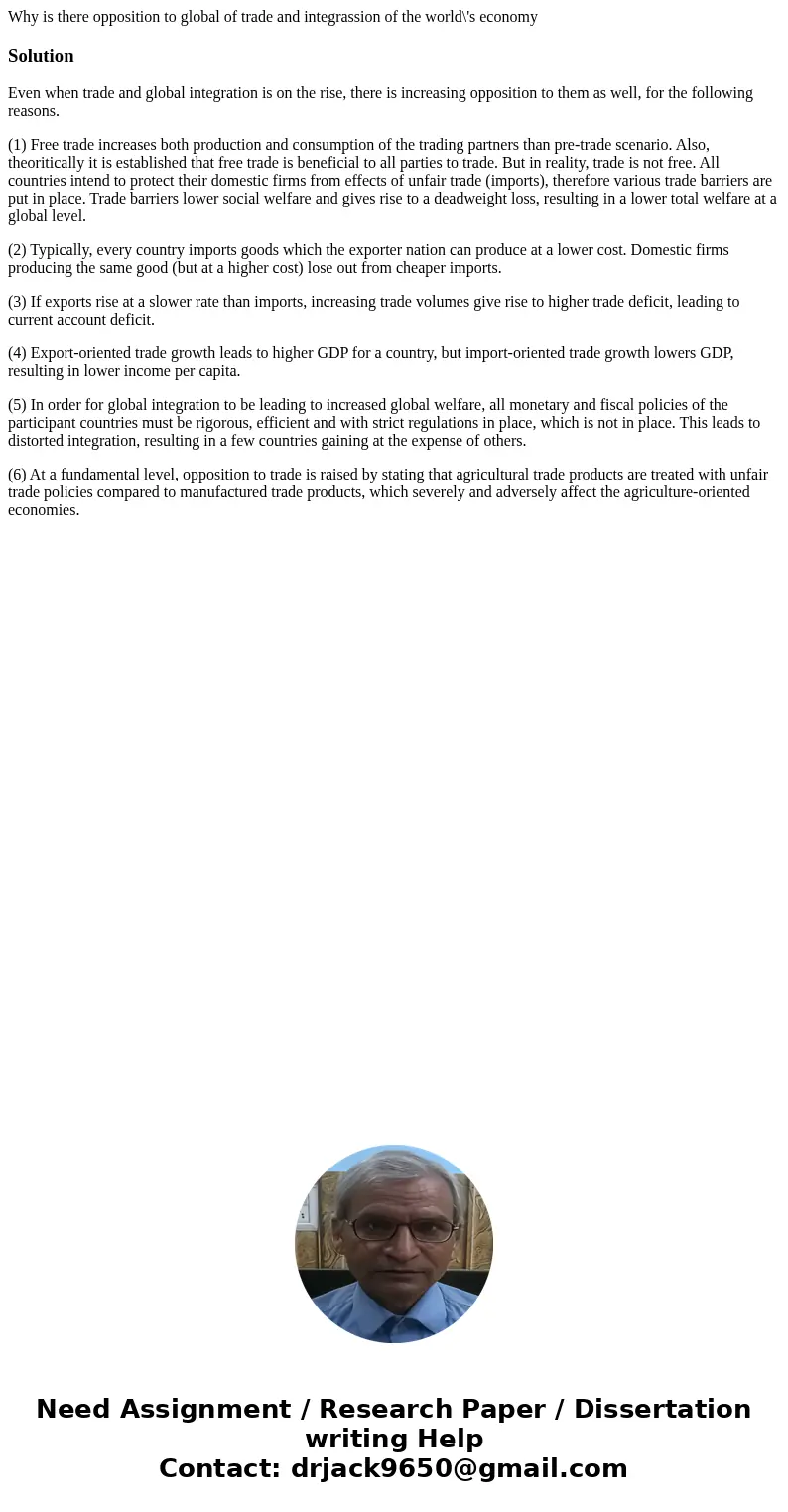Why is there opposition to global of trade and integrassion
Why is there opposition to global of trade and integrassion of the world\'s economy
Solution
Even when trade and global integration is on the rise, there is increasing opposition to them as well, for the following reasons.
(1) Free trade increases both production and consumption of the trading partners than pre-trade scenario. Also, theoritically it is established that free trade is beneficial to all parties to trade. But in reality, trade is not free. All countries intend to protect their domestic firms from effects of unfair trade (imports), therefore various trade barriers are put in place. Trade barriers lower social welfare and gives rise to a deadweight loss, resulting in a lower total welfare at a global level.
(2) Typically, every country imports goods which the exporter nation can produce at a lower cost. Domestic firms producing the same good (but at a higher cost) lose out from cheaper imports.
(3) If exports rise at a slower rate than imports, increasing trade volumes give rise to higher trade deficit, leading to current account deficit.
(4) Export-oriented trade growth leads to higher GDP for a country, but import-oriented trade growth lowers GDP, resulting in lower income per capita.
(5) In order for global integration to be leading to increased global welfare, all monetary and fiscal policies of the participant countries must be rigorous, efficient and with strict regulations in place, which is not in place. This leads to distorted integration, resulting in a few countries gaining at the expense of others.
(6) At a fundamental level, opposition to trade is raised by stating that agricultural trade products are treated with unfair trade policies compared to manufactured trade products, which severely and adversely affect the agriculture-oriented economies.

 Homework Sourse
Homework Sourse